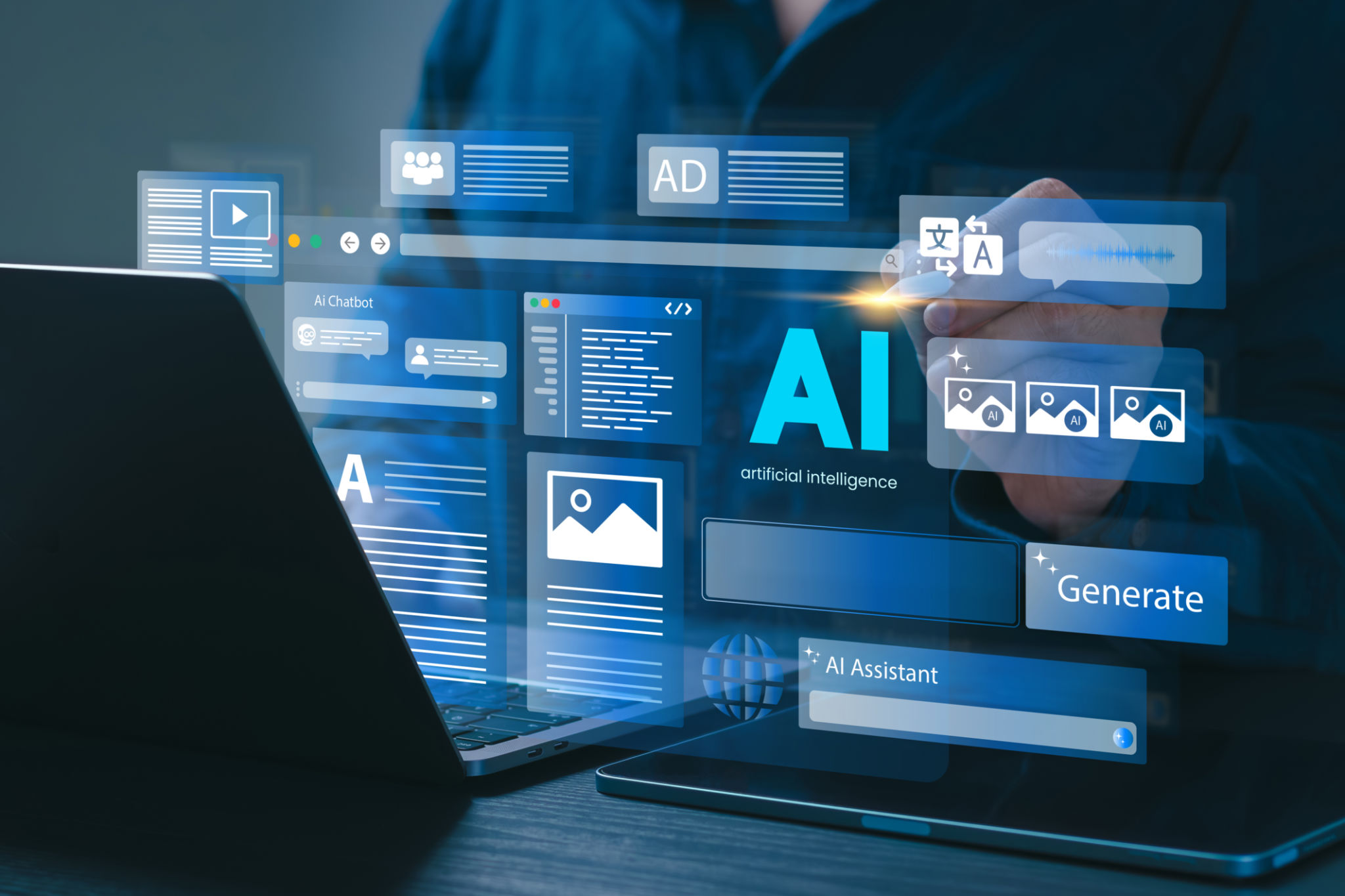AI in Digital Marketing: Separating Hype from Reality
Understanding the Role of AI in Marketing
Artificial Intelligence (AI) has emerged as a transformative force in the world of digital marketing, promising to streamline processes, enhance customer experiences, and boost overall efficiency. However, as with any rapidly evolving technology, distinguishing between the actual capabilities of AI and the surrounding hype can be challenging. Understanding AI's true potential and limitations is crucial for businesses looking to leverage this technology effectively.

The Hype: AI as a Marketing Miracle
There's no shortage of buzz around AI's potential to revolutionize marketing. From automating customer service to predicting consumer behavior, AI is often touted as a miracle solution that can solve nearly every marketing challenge. This perception is fueled by successful case studies and innovative applications that showcase AI's potential. However, it's important to recognize that these success stories often represent ideal scenarios rather than everyday applications.
Businesses may be tempted to adopt AI solutions without fully understanding the technology, leading to unrealistic expectations. The belief that AI can replace human intuition and creativity in marketing can result in costly missteps. In reality, AI should be seen as a tool to augment human effort rather than replace it.
The Reality: Practical Applications of AI
While AI may not be a panacea, it offers several practical applications that can significantly enhance digital marketing efforts. The most impactful use cases often involve data analysis and personalization. AI can process vast amounts of data quickly, providing insights into consumer behavior that would be impossible to glean manually.

Personalization is another area where AI excels. By analyzing user data, AI algorithms can predict preferences and tailor content to individual users, leading to more engaging and effective marketing campaigns. Chatbots powered by AI also offer practical benefits by handling routine customer inquiries, freeing up human resources for more complex tasks.
Challenges in Implementing AI
Despite its potential, implementing AI in marketing is not without challenges. Data privacy concerns are at the forefront, as consumers and regulatory bodies become increasingly vigilant about how personal information is used. Ensuring compliance with data protection regulations while leveraging AI capabilities is a delicate balance that businesses must navigate.

Moreover, the success of AI applications in marketing heavily depends on the quality of data fed into the algorithms. Poor data quality can lead to inaccurate insights and suboptimal outcomes. Businesses need to invest in robust data management practices to harness the full potential of AI.
The Future of AI in Marketing
As technology advances, the role of AI in digital marketing will continue to evolve. Emerging trends such as voice search optimization and augmented reality are opening new avenues for AI applications. The key to staying ahead lies in continuously monitoring these developments and adapting strategies accordingly.
Ultimately, the future of AI in marketing will likely see a shift towards more sophisticated applications that integrate seamlessly with human creativity and strategy. Businesses that embrace this collaborative approach are poised to unlock new levels of success.
Conclusion: A Balanced Perspective
In conclusion, separating hype from reality is essential for businesses seeking to leverage AI in digital marketing effectively. While AI offers numerous advantages, it is not a one-size-fits-all solution. By understanding its capabilities and limitations, businesses can make informed decisions that enhance their marketing efforts.
AI should be viewed as an enabler that complements human expertise rather than a replacement. By adopting a balanced perspective, businesses can harness the true power of AI to drive growth and innovation in their marketing strategies.